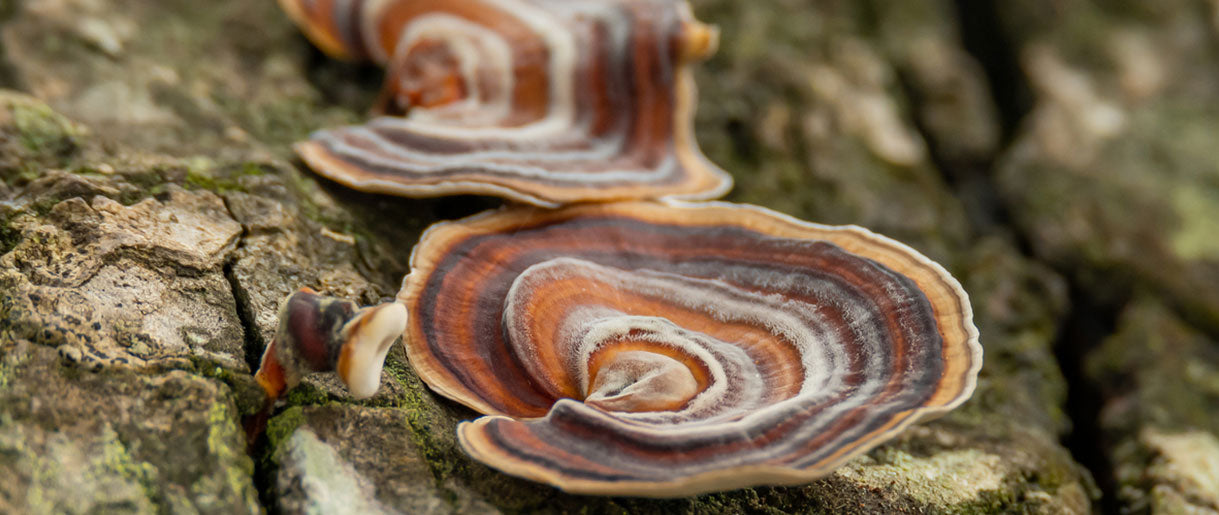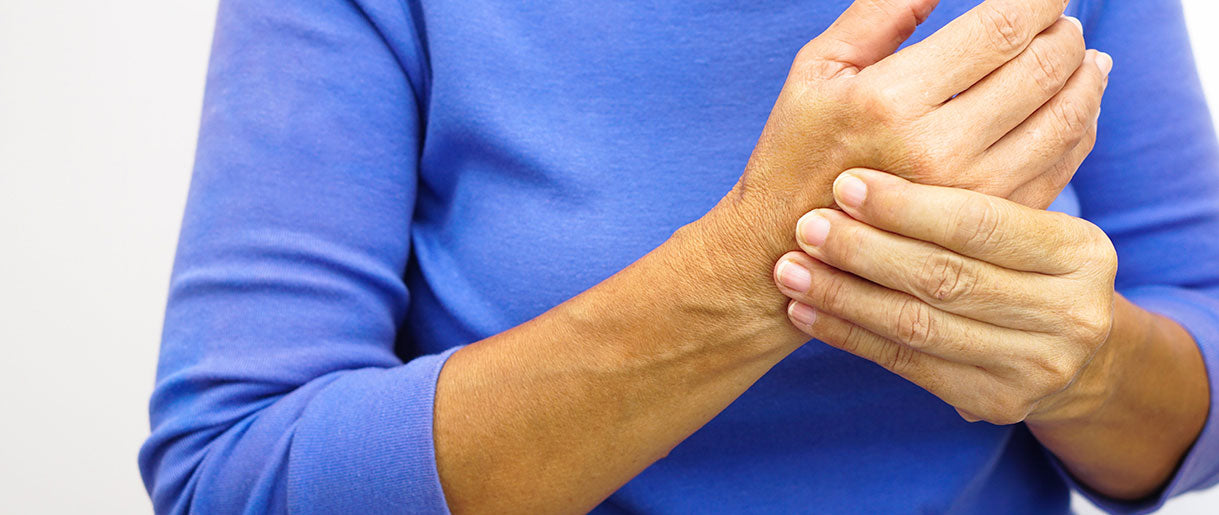Turkey Tail Mushroom (Trametes versicolor) is a medicinal mushroom widely used in traditional medicine. Recent research suggests that it may play a role in managing Human Papillomavirus (HPV) due to its immune-boosting properties.
A study published in "Global Advances in Health and Medicine" suggested that the polysaccharopeptide (PSP) found in Turkey Tail might help improve the immune function, potentially aiding the body in fighting HPV. However, while these preliminary findings are promising, they are inconclusive, and more research is required.
This article delves deeper into the fascinating correlation between Turkey Tail and HPV management. We will scrutinize available scientific evidence, analyze the mechanics behind the proposed benefits of Turkey Tail Mushroom, and address the potential risks and side effects.
In addition, we will also look into other potential natural remedies for HPV, offering a comprehensive view of the alternative avenues being explored in contemporary research. Despite the limitations of current studies, we believe that investigating these natural strategies can add another dimension to our understanding of HPV management.
Unmasking HPV: A Close Look at the Virus

The Spread of HPV: A Silent Invader
Human Papillomavirus (HPV) is a prevalent and stealthy virus that can infect various body parts. One form that it can take is an oral human papillomavirus infection. This primarily spreads through intimate skin-to-skin contact, including kissing and sexual activities. In addition, an oral HPV infection is often asymptomatic, meaning individuals can spread the virus without knowing they have it.
The Unseen Impact: Symptoms and Complications of HPV
The invisible nature of HPV makes it a silent health risk. Yet, while many people might carry the virus and show no signs, in some cases, it can lead to serious health issues.
Common HPV symptoms can range from warts on the skin and genital areas to more severe conditions such as cervical and other types of cancer, including oropharyngeal cancer, which is linked to oral HPV.
The relationship between the immune system and HPV is complex. A robust immune response can often suppress and prevent the virus from causing these symptoms. However, in some individuals, particularly those with compromised immunity, the virus may persist and lead to complications.
Navigating the Threat: Current Approaches to HPV Treatment
Despite being a prevalent and potentially severe virus, there are effective ways to manage and treat HPV. Current HPV treatment methods primarily address symptoms, such as removing warts or treating precancerous lesions.In cases of persistent HPV infection, a robust immune response is crucial in helping the body to clear the virus, hence the emphasis on strategies to enhance immune function.
Preventative measures are the cornerstone of HPV management. Vaccination plays a crucial role in preventing both the spread of the virus and the development of HPV-related cancers. By stimulating an immune response against the virus, the HPV vaccine can protect against the most dangerous types of HPV, including those that cause oral and other cancers.
It's important to remember that HPV is not the same as oral human papillomavirus HPV, explicitly referring to mouth and throat infections. These can be more difficult to detect, treat and prevent.
Guarding Against HPV: The Role of the Immune System
Your immune system is your body's primary defense against viral infections, including HPV. When functioning correctly, the immune system can often clear an HPV infection without the person ever showing symptoms.
However, persistent infections occur when the immune system can't eliminate the virus. Here, the interplay between HPV and immune function becomes especially significant.
Studies suggest that certain natural substances, like the Turkey Tail Mushroom, might support the body's immune response to HPV. By helping to enhance immune function, they could offer a natural complement to traditional methods used to treat HPV.
Turkey Tail Mushroom: A Stalwart of Traditional Medicine and Modern Research

Walk Through History: The Turkey Tail Mushroom in Traditional Medicine
The Turkey Tail Mushroom, recognized for its striking resemblance to a turkey's tail, is among the most commonly found medicinal mushrooms around the globe. With a colorful mushroom cap that sports an array of hues, these mushrooms have been part of traditional Chinese medicine for centuries. Turkey Tail has been consumed to boost vitality, promote longevity, and assist in the recovery from various health conditions.
Interesting Read: See how to identify Turkey Tail mushrooms in the wild.
Unlocking the Power of Turkey Tail: An Array of Health Benefits
Beyond their historical usage, Turkey Tail mushrooms are increasingly appreciated for their diverse health benefits in contemporary wellness practices. One of the most widely acknowledged Turkey Tail benefits is its ability to support a robust immune system.
The mushroom is rich in a unique protein-bound polysaccharide—Polysaccharide-K (PSK) and Polysaccharide-P (PSP)—believed to stimulate white blood cells and natural killer cells that fight infections and tumor cells.
Turkey Tail also improves gut health, maintaining gut bacterial balance. It is believed to promote the growth of beneficial bacteria and enhance overall gut health. Emerging research also suggests it may lower blood sugar levels and support cardiovascular health, adding to its portfolio of health-boosting properties.
Shining a Light on Turkey Tail: Current Scientific Perspectives on Major Turkey Tail Health Boosting Properties
Modern scientific research into medicinal mushrooms like Turkey Tail has provided some excellent insights, particularly in the context of cancer treatment. Studies have found evidence(1) of Turkey Tail potentially helping fight cancer, including breast, colorectal, and gastric cancer.
Researchers have also noted that(2) Turkey Tail can help combat chronic inflammation associated with numerous health conditions. By helping to reduce inflammation, Turkey Tail may offer a natural approach to managing these conditions.
Anecdotal evidence and preliminary studies have suggested that Turkey Tail might be beneficial post HPV diagnosis, as it can help bolster immune system health. This is partly attributed to its potential ability to increase the production of white blood cells, thereby supporting the body's defenses.
Harnessing the Power of Fungi: Turkey Tail and the Immune System

The Fungal Fortress: Turkey Tail and Immune Boosting Properties
Among the many medicinal mushrooms available, Turkey Tail mushrooms and Reishi stand out for their immune-boosting properties. These mushrooms, particularly Turkey Tail, known scientifically as Trametes versicolor, have a rich history in traditional medicine and modern wellness practices.
The key to the immune-supporting properties of these mushrooms lies in their unique compounds. Turkey Tail, for instance, contains Polysaccharide-K (PSK), which has been found to stimulate dendritic cells, a type of immune cell crucial for pathogen recognition and response.
In the Lab and Beyond: Scientific Studies on Turkey Tail's Immune Benefits
Several scientific studies(3) have reinforced the immune-enhancing properties of Turkey Tail and Reishi. In addition, a preliminary clinical trial showed that these medicinal mushrooms could improve the gut's microbiota, potentially enhancing immunity since a significant portion of the body's immune cells are in the gut. This interplay between Turkey Tails, Reishi mushrooms, and gut bacteria represents a promising area of research.
In another study(4), PSK, the polysaccharide found in Turkey Tail, enhanced immunity by activating dendritic cells (PSK stimulates dendritic cells). This activation boosts the body's defense mechanisms, paving the way for more effective disease control.
Turkey Tail for HPV: The Intersection of Immunity and Treatment

Given their immune-enhancing properties, there is growing interest in the potential role of Turkey Tail in managing health conditions such as HPV. Robust immunity is vital in responding to HPV and other viruses. Turkey Tail mushrooms can potentially strengthen the body's immune defenses, providing support alongside conventional HPV treatment methods.
Turkey Tail Mushroom and HPV: Examining the Potential Connection
Unearthing the Links: Recent Studies on Turkey Tail and HPV
Recent years have seen a surge in interest regarding the potential role of Turkey Tail in HPV management. As a result, researchers have explored(5) the possibility of Turkey Tail HPV treatment, focusing on the mushroom's immune-boosting properties. Medicinal mushrooms like Turkey Tail and Reishi are rich in bioactive compounds that stimulate immune cells, thereby supporting a robust immune system.
In one study(6), Turkey Tail HPV patients were given a Turkey Tail extract supplement over a certain period. As a result, researchers observed a decrease in HPV-related cellular abnormalities in several participants, suggesting a potential benefit of Turkey Tail mushrooms in managing HPV.
Reading Between the Lines: Analyzing the Potential Benefits and Limitations
These initial results are promising, providing a glimpse into the potential role of Turkey Tail mushrooms in managing HPV. The mushroom's immune-boosting properties may help reduce HPV symptoms by strengthening the body's natural defenses, thereby supporting a robust immune system.
However, it's essential to approach these findings with a balanced perspective. While encouraging, the studies conducted so far are preliminary and often have small sample sizes. Thus, while they point to the potential benefits of Reishi and Turkey Tail for HPV, they do not offer conclusive evidence of their efficacy in managing HPV.
Beyond Turkey Tail: Exploring Other Natural Supplements for HPV
While Turkey Tail mushroom extract has gained considerable attention for its potential role in HPV management, it's not the only natural remedy under investigation. Other medicinal mushrooms like Reishi, Shiitake, and Maitake have been researched for their potential to support immune health and virus management.
Green tea extract, for instance, has been studied for its rich antioxidants and potential antiviral properties, which could be beneficial for HPV management. Likewise, vitamins A, C, and E, along with minerals like zinc, play crucial roles in supporting a healthy immune function and may aid in managing HPV.
A Comparative Brew: Turkey Tail vs. Other Remedies
Turkey Tail extract stands out for several reasons compared to other natural remedies. First, this medicinal mushroom is abundant in unique compounds like polysaccharides, phenols, and flavonoids, which are thought to stimulate immune activity. This can be advantageous in managing viral infections like HPV.
The extract can be easily incorporated into one's daily regimen as capsules, powders, or even a Turkey Tail mushroom tea. This versatility makes it convenient for those looking to bolster their overall wellness.
Proceeding with Caution: Understanding the Safety, Side Effects, and Dosage of Turkey Tail Mushroom

Potential Side Effects of Turkey Tail Mushroom: What to Expect
While Turkey Tail is generally considered safe for consumption, it may have potential side effects like any supplement. For example, mushroom tea could cause digestive upset, such as diarrhea or bloating—however, this is common when first consuming the mushroom or taking it in large quantities. Some individuals may also experience changes in the color of their stools due to the high fiber content in the mushroom.
Precautions and Contraindications: Better Safe Than Sorry
It's essential to approach Turkey Tail with care and consideration. If you have a mushroom allergy, you should avoid Turkey Tail. Similarly, those with compromised immunity or on immunosuppressant medications should consult a healthcare provider before using Turkey Tail. The immune-boosting properties of the mushroom may potentially interfere with these medications.
Furthermore, while Turkey Tail has potential benefits in managing HPV, it should not be considered a replacement for medical treatment. It's essential to follow your healthcare provider's guidance and use Turkey Tail as a supplementary treatment if approved by your provider.
Finding the Right Dose: Tailoring Your Turkey Tail Intake
Determining the appropriate dosage of Turkey Tail Mushroom can depend on various factors, including your overall health, age, and the specific health concern you're addressing. Generally, a standard dosage in supplement form ranges from 1,000 to 3,000 milligrams per day, but it's critical to consult a healthcare provider for personalized advice.
When using Turkey Tail Mushroom, it's not just about quantity but also quality. Ensure you're sourcing supplements from a reputable supplier to avoid products with harmful additives or inferior ingredients.
FAQs About Turkey Tail HPV Benefits
What Types Of Cancer Does Turkey Tail Help?
Turkey Tail mushrooms (Trametes versicolor) are a type of medicinal mushroom with potential anticancer properties. Here are the types of cancers that Turkey Tail mushrooms have been studied for:
- Breast Cancer: Some research has suggested that Turkey Tail may help strengthen immunity during chemotherapy for breast cancer.
- Colorectal Cancer: Some preliminary studies have explored Turkey Tail as an adjunct therapy for colorectal cancer, given its potential immune-boosting properties.
- Prostate Cancer: Some initial research has suggested that Turkey Tail might benefit individuals with prostate cancer.
- Lung Cancer: Turkey Tail has been studied for their potential role in supporting immune function during non-small cell lung cancer treatment.
- Gastric (Stomach) Cancer: In traditional Chinese medicine, Turkey Tail has been used for various conditions, including gastric cancer. Some scientific research has supported this usage, but more studies are needed.
The active compound in Turkey Tail mushrooms, polysaccharide-K (PSK), has been used as an adjunct therapy for cancer in Japan for several years. PSK is thought to have immune-modulating and anticancer effects.
What Can Turkey Tail Help With?
While Turkey Tail is not a substitute for professional medical advice or treatment, some studies suggest that Turkey Tail might have a role in the following:
- Immune Support: Turkey Tail is rich in polysaccharides, including Polysaccharide-K (PSK) and Polysaccharide-P (PSP), which are thought to support immune function.
- Adjunct Cancer Treatment: Turkey Tail has been studied for its potential role in supporting conventional cancer treatments, particularly in breast cancer, colorectal cancer, prostate cancer, non-small cell lung cancer, and gastric cancer.
- Gut Health: Turkey Tail contains prebiotics, which can help nourish the gut microbiota, potentially supporting digestive health.
- Antioxidant Activity: The mushroom is rich in antioxidants, which can help fight oxidative stress in the body, potentially reducing the risk of chronic diseases.
- Overall Wellness: Turkey Tail may contribute to overall health and wellness due to its potential immune-boosting and antioxidant properties.
It's essential to consult a healthcare professional before starting any new supplement regimen, including Turkey Tail mushrooms. These potential benefits should be considered alongside conventional medicine and not as a replacement.
How Long Does It Take For Turkey Tail Mushroom To Work?
The time it takes for Turkey Tail to "work" or for an individual to see effects can vary greatly. It will depend on various factors, including the individual's overall health status, the specific condition being addressed, the dosage used, and the quality of the Turkey Tail supplement.
For general immune support or wellness, it could take several weeks to a few months to notice potential changes, such as increased energy levels or fewer common illnesses. However, this is entirely subjective, and many effects on immune health might not be noticeable to the individual.
Research studies using Turkey Tail often span several months to years for more specific health problems like cancer. In these studies, Turkey Tail is usually used as an adjunct to conventional cancer treatments, not as a standalone treatment. In the context of cancer, "working" would be measured by clinical outcomes such as tumor response, progression of the disease, or changes in immune markers.
For managing HPV, a clinical study investigating the effects of Turkey Tail showed beneficial effects over about two months. However, this was a small study, and more research is needed.
Key Takeaways
In this article, we dove into the research on Turkey Tail's potential role in HPV management, looking at how its immune-boosting properties might be beneficial. Additionally, we explored the potential side effects, safety considerations, and dosage recommendations associated with Turkey Tail. Alongside this, we examined other natural remedies for HPV and compared them to the potential benefits of Turkey Tail.
Despite the promising findings surrounding Turkey Tail mushrooms, it's important to remember that they are not a cure-all solution. Any potential benefits should be considered in conjunction with traditional medical treatments. Therefore, it's crucial to consult with a healthcare professional before starting any new supplement regimen, including Turkey Tail mushrooms.
We want to hear from you! Do you have any experiences with Turkey Tail you'd like to share? Or perhaps some additional questions or insights? Please feel free to leave a comment below. Your experiences and insights can help others embark on their journey with Turkey Tail and HPV management. Remember, sharing is caring!
References
- Trametes versicolor (Turkey Tail Mushrooms) and the Treatment of Breast Cancer, (1)https://www.ncbi.nlm.nih.gov/pmc/articles/PMC4890100/
- In vitro bioactivity, antimicrobial and anti-inflammatory efficacy of modified solvent evaporation assisted Trametes versicolor extract, (2)https://www.ncbi.nlm.nih.gov/pmc/articles/PMC7447717/
- Effects of polysaccharopeptide from Trametes versicolor and amoxicillin on the gut microbiome of healthy volunteers: a randomized clinical trial, (3)https://pubmed.ncbi.nlm.nih.gov/25006989/
- Immune Modulation From Five Major Mushrooms: Application to Integrative Oncology, (4)https://www.ncbi.nlm.nih.gov/pmc/articles/PMC4684115/
- Control of oral human papillomavirus (HPV) by medicinal mushrooms, Trametes versicolor and Ganoderma lucidum: a preliminary clinical trial, (5)https://pubmed.ncbi.nlm.nih.gov/25271984/
- Efficacy of a Coriolus versicolor-Based Vaginal Gel in Women With Human Papillomavirus-Dependent Cervical Lesions: The PALOMA Study, (6)https://pubmed.ncbi.nlm.nih.gov/33746195/










Let Us Know Your Comments